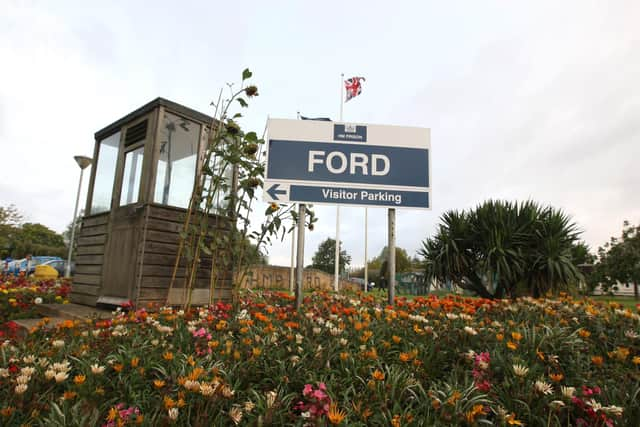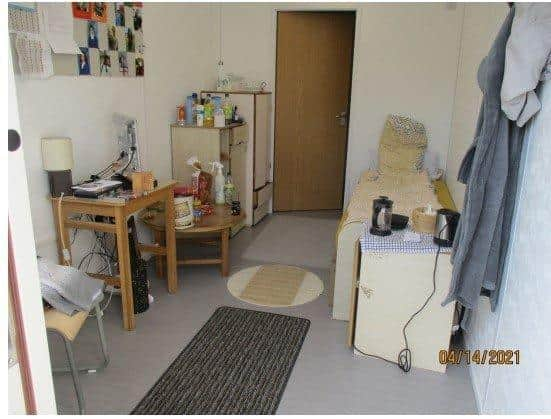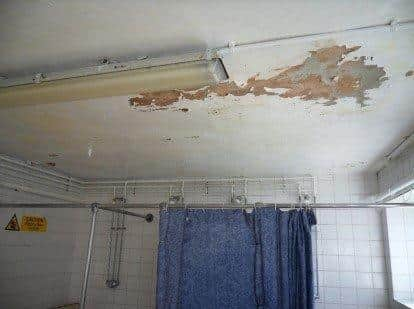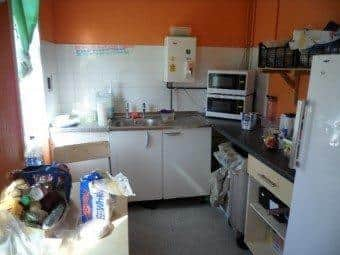Ford prisoners forced to wash underwear in buckets amid ‘shabby conditions’
and live on Freeview channel 276
The men’s open prison was inspected by HM Inspectorate of Prisons (HMI Prisons) in March and April this year, at a time when Ford held 418 prisoners – many in former military quarters.
Charlie Taylor, HM chief inspector of prisons, said: “While we acknowledge the inherent limitations of the old and worn accommodation at Ford, this did not excuse the poor cleanliness and shabby conditions we found. It was clear that there had been little oversight of standards in the residential accommodation.
Advertisement
Hide AdAdvertisement
Hide Ad“It was unacceptable that, during a pandemic, access to laundry facilities and the provision of soap was so poor. We saw prisoners cleaning their underwear and dishes in buckets in shared toilet areas, which we would not expect to see in a modern prison service, let alone in an open prison that should be promoting and supporting independent living skills.”


HMI Prisons’ report said the prison’s leaders said their focus over the last year had been to keep people safe from Covid-19, but Mr Taylor argued this should not have been at the expense of other priorities.
Despite a few positive cases among prisoners and staff, the prison has not experienced an outbreak of Covid-19 so far.
But the report stressed there was the potential for a virus to spread rapidly due to the poor hygiene.
Advertisement
Hide AdAdvertisement
Hide AdSocial restrictions during the pandemic had a ‘significant impact’ on many prisoners, Mr Taylor said.


Many had worked hard to progress to open conditions which would have allowed them greater freedoms, only to have them removed during a national ban on temporary release.
“Prisoners who had expected to be working in the community and rebuilding family ties on resettlement licence instead found themselves, literally, confined to barracks,” Mr Taylor said.
While the prison was working to ease restrictions, Mr Taylor said there were few prisoners in education, vocational training or community placements, which indicated ‘weaknesses in the planning for recovery’.
Advertisement
Hide AdAdvertisement
Hide Ad“Release on temporary licence had started to ramp up, but ultimately there were too many unemployed and unoccupied prisoners who were bored, demotivated and unable to progress in the way they had expected,” he added.


There were also concerns prisoners felt the threat of being returned to closed conditions was used to control their behaviour and stymie dissent among inmates.
Mr Taylor said some leaders and staff had developer a narrative that suggested the prison was more violent and volatile than statistics indicated and some expressed low expectations of prisoners.
He said: ““Ford had one of the highest rates of return to closed conditions in the open estate, which supported the view of many prisoners who said the threat of recategorisation was used unfairly to control their behaviour and sometimes deterred them from speaking out about issues affecting them.
Advertisement
Hide AdAdvertisement
Hide Ad“All of this was contributing to a culture that felt far from rehabilitative.”


The prison was, however, praised for its family support work, which was reported to be greatly valued by prisoners. Some are now able to see their families on temporary release into the community.
Overall, Mr Taylor said: “This was a disappointing visit and we urge leaders at national and local levels to address the concerns we have highlighted with urgency. The first challenge is to assess the extent to which the problems have been caused by the pandemic and how much they are specific to the culture of the prison.
“The former will, we hope, be resolved as restrictions are lifted, but the latter will require more focused leadership and support from HM Prison and Probation Service to make sure that Ford fulfils its rehabilitative purpose in the future.”
Advertisement
Hide AdAdvertisement
Hide AdA spokesman for the Prison Service said it accepted the report’s recommendations and steps were being taken to address its findings, including the installation of over 100 new beds in new accommodation.
“The report recognises staff efforts to create a safe environment and continue vital family support during this challenging time, but we know there is work to do and are improving older buildings and creating new accommodation,” said the spokesman.